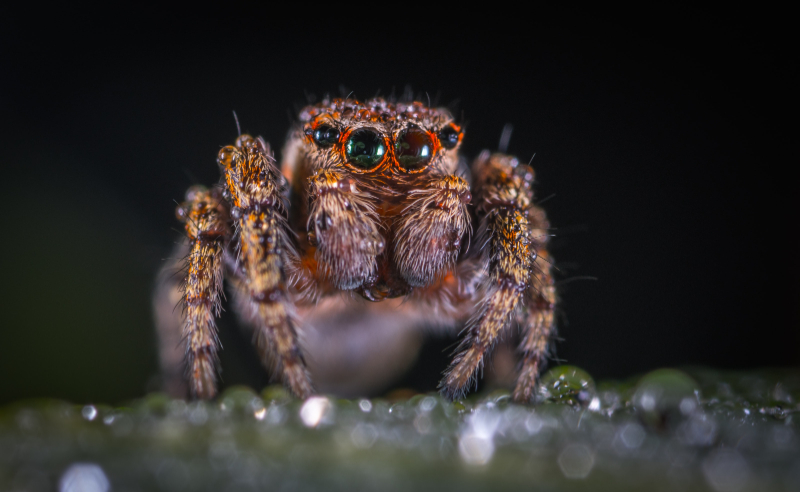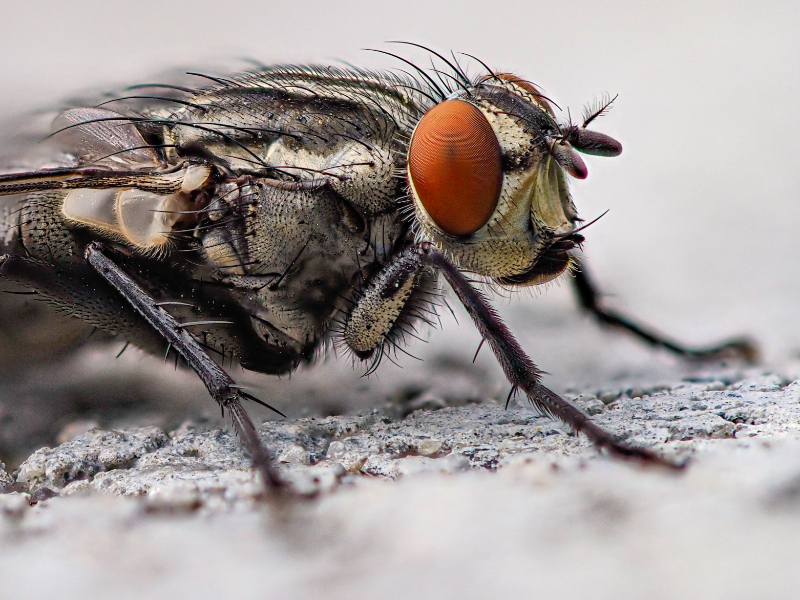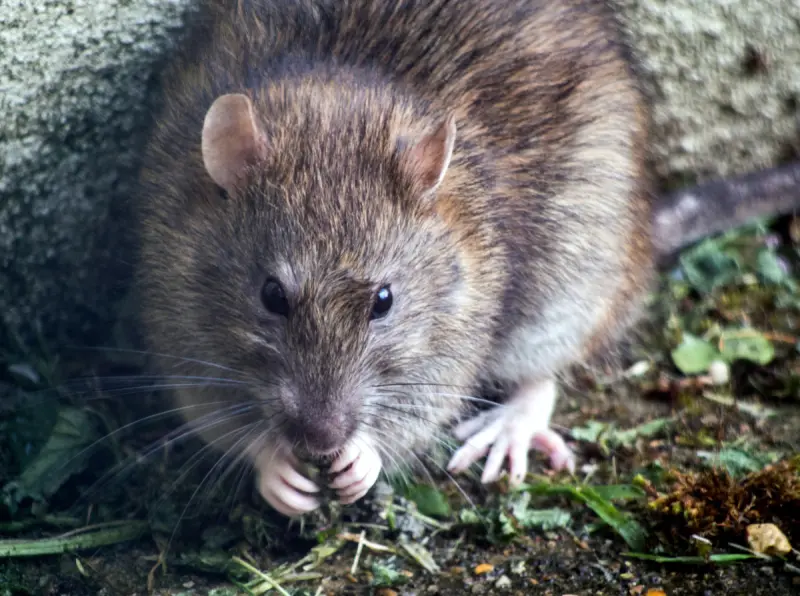What is the most common pest in the UK? This article looks at common pest problems for homes and businesses. Find out how to identify which pest is causing problems on your property.
COMMON PEST PROBLEMS:
There are many household pests in the UK posing threats to your health and your home. With house bugs, squirrels, birds, mice, rats, and other common pests attracted to our food waste and the warmth from our homes, you are likely to face off many pests year-round.
One in three households will experience a pest problem, whether that's dust mites, carpet beetles, grey squirrels or something else entirely. As rats or mice enter your home, you could be facing an infestation.
The rodents will begin building nets, acting as a hub of diseases and breeding. This can be in your walls, cupboards, garden or elsewhere. Rodents are attracted to the warmth of our houses and use the security for feeding of the young.
If you are experiencing pest problems at your home, you should contact pest control as soon as possible. Many species are extremely dangerous to human health, so let's assess the most common household pests you could face before tackling them.
Rodents:
Without a doubt, the most common household pests in the UK are rodents. Rats and mice regularly invade domestic and commercial properties, being able to fit into the smallest of holes and slowly infest until the numbers are too large.
Pest controllers are well versed in removing and dealing with rodents, so always contact a professional if you believe you have these small unwanted guests in your home.
Mice
You may look at a house mouse and think it's quite cute, but others will be found where one mouse has been spotted. Disease and dangerous health hazards follow a mouse spotting, leaving your furniture and surroundings unclean and at risk.
Mice consistently gnaw on pipes, floorboards, insulation and anything else they can find as they make room for nesting. Their faeces is also a massive problem for humans, carrying deadly diseases like Hantavirus and Salmonellosis.
You can typically spot their droppings in the morning as they move overnight while everyone sleeps. As mice spread, they will gnaw and chew on electrical wires, causing fire risks and severe damage in some places.
Rats
Discovering a rat pest problem at your property can be incredibly distressing, especially for commercial establishments. While rats aren't necessarily linked to unclean areas, the conditions in which you leave your premises and protect your food waste do play a part in rat populations.
When identified, customers will lose faith in your ability to clean the premises, and rats can quickly spread disease around the human population. Rat's urine and droppings will quickly contaminate food, circulating Rat-bite fever, Weil's disease/Leptospirosis or Salmonellosis.
To avoid a rodent problem at your property, always store food in metal or glass containers, sealing it away from sight, place rubbish bags in secure bins and clear away any debris from around the house and garden.
The fewer areas a rodent can hide, the less likely they are to burrow and breed. Norway Rats/Sewer rats are very adept at swimming through our pipes and sewage systems, so always check your drainage pipes and waste outlets.
.jpg)
House Bugs:
Depending on your disposition, many house bugs pose no health risk to your family but are disconcerting to spot.
Many other bug and insect species will bite and cause irritation, however. Before moving on to flying insects, let's familiarise you with some common house bugs you can find around your property.
Bed Bugs
Bed bugs are not to be meddled with, choosing to feed on human blood, especially at night. A bed bug problem is easier to spot than other pests, and you will sometimes spot these small, flat insects on your bedding, clothes and furniture.
They only measure 5mm in length, but their brownish colour is notable against most fabrics. Bed bugs will become redder in colour after feeding. Due to their size, bed bugs can easily hide in mattresses, loose wallpaper and even furniture during the day, coming out at night.
They can also feed on our pets, meaning your dogs and cats are not safe against large numbers of bed bugs. Allergic reactions to a bed bug bite can cause a skin infection but generally will only prove to be a slight annoyance. Bed bugs feed on blood to develop their eggs.
Cockroaches
Spotting cockroaches at your property is a sign you should not take lightly and will require professional pest control treatment in most cases.
Cockroach droppings can cause inflammations in eczema and asthma along with Dysentery, Salmonella and Gastroenteritis. Cockroaches can breed quickly, easily doubling in numbers overnight.
They tend to walk through faeces and eat rotten food, meaning they can bring both throughout your house when carrying them. Spreading germs across your entire home, especially kitchen countertops, is easy for a group of cockroaches.
Fleas
Pet owners will be familiar with the most common annoyance that are fleas, but they do pose a risk to those without pets too. You can find them on other animals such as foxes, badgers, rabbits, and even livestock such as pigs.
Uncomfortable itches and reactive rashes can occur after being bitten by a flea as they are parasites. Your pets can develop flea saliva allergies, resulting in regular illnesses. Fleas are incredibly well evolved at moving around the house, hopping from host to host with great strides despite not having any wings.
Flea treatment on your pets is usually an excellent place to start, also treating any affected materials or furniture.
Carpet beetles
One of the most common pests during Spring are carpet beetles, taking home in the carpets around your home. You can spot carpet beetle larvae around the windows and carpets during the Spring months, indicating you have an infestation on your hands.
Adults can grow up to 4mm in length and appear in a black, yellow and brown pattern. They will shed their skins and leave faecal matter as they grow and move throughout the house.
Spiders
Up to 15% of the population suffer from arachnophobia, and spiders entering our homes is a common occurrence up and down the country.
Many spider infestations work hand-in-hand with fly infestations, meaning you can remove both at one time with a professional exterminator. False black widow spiders continue to be a scare for many people, but spiders of all sizes can suggest a bug infestation.
Biscuit beetles
Taking their name from their diet, biscuit beetles will feed on any available biscuits, pasta, cereal, powdered soup, flour and any other food in your pantry and cupboards. You should always take care to store away your food correctly, ensuring nothing is within reach for beetles.
Use containers and ensure they are air-tight. Biscuit beetles can be identified by their hard shells and reddish-brown colour. Regularly cleaning out your food cupboards during Springtime can help ensure no insects and bugs take refuge and spread disease among your food.
Other stored product insects can enter our homes from our shopping, so always check your food before putting it in the cupboard.
Ants
Although ants are a common problem in your garden and for gardeners, you can also experience them invading your home and kitchen.
Ants move in large numbers and can be hard to stop once an infestation has taken place, but you can prevent them from entering by regularly cleaning down your countertops and not leaving food out.
Ground beetles
While they may look dangerous, ground beetles pose very little threat to humans.
They enter our homes during the colder months to stay warm, so the best thing you can do is release them back outside and seal up any gaps they use to enter.

Flying Insects:
There are many flying insects that pose a threat to you and your family, getting into our homes through open windows and doors.
Always contact a professional when you have large numbers of flying insects at your home.
Wasps
We are all too familiar with wasps in our gardens, and they pose life-threatening risks to those with allergies. Their stings can be painful and annoying, needless to say, their nests. Wasps have a tendency to make their nests in crowded areas where people gather, such as above your decking, in doorways, sheds, garages and even lofts.
When the queens emerge in Springtime, you are more likely to be stung than once, and tackling a wasps nest by yourself is a dangerous task. Consult a professional for wasp nest removal.
Flies
While there are over 7000 species of fly across England, Scotland and Northern Ireland, with the common house fly being sighted the most, there are many risks to these annoying insects in your home.
Flies can quickly spread diarrhoea and food poisoning around your home, along with more deadly diseases such as E.Coli. To prevent flies from gaining access, keep food waste stored safely and ensure no food is left out.
More specific information can be found on dealing with fruit flies, filter flies or one of the other species. Please contact our team if you are dealing with a large fly population.
Moths
Most of the moth population are harmless to humans, but some produce harmful larvae that can damage your homes and furniture.
Any silks, wools, cotton and furs are at risk from larvae. Unlike the other pests on this list, moths pose no health risk to you, only home damage. Some common moth species are a brown house moth, a White-shouldered house moth and a case-bearing clothes moth.
Mosquitoes
Mosquitoes will be spotted throughout summer and the warmer months, with their eggs laid on ponds and stagnant bodies of water.
They pose a risk to humans, biting humans to consume blood, causing swelling and irritation. Essential oil sprays and citrus candles are ideal for keeping mosquitoes away from your family, so regularly spray those around.

Most common household pests in the UK by region
Depending on where you are in the UK, you will be affected by different species and pests. These require unique measures and should be followed if you want peace of mind from the pests in your area.
On the whole, the South-West experiences more wasps than the North. However, Northern Ireland and Wales are more likely to experience rat and rodent-related pest problems.
Throughout homes in the Midlands, you will suffer greater from cockroaches than anywhere else in the country. Scotland consistently experiences more bird pest problems than anywhere else.
As with all of these problems, you should always contact a professional beforehand. It may be tempting to tackle the problem yourself, but you can cause more damage to yourself and the property if you do so. Get in touch with us if you require more support.
Are you looking for pest control services in Portsmouth, Southampton, Basingstoke And Hampshire?
Pest Control Hampshire are pest control specialists working throughout Portsmouth, Southampton, Basingstoke And Hampshire. Contact us for pest removal near me Hampshire.
Follow the links below to find a pest control specialist to help resolve your pest infestation.

